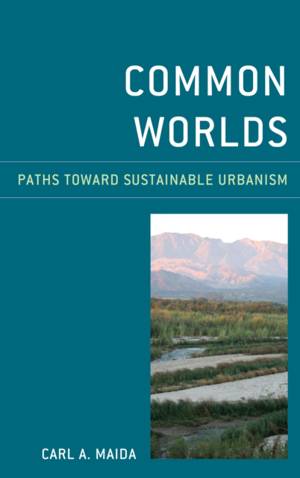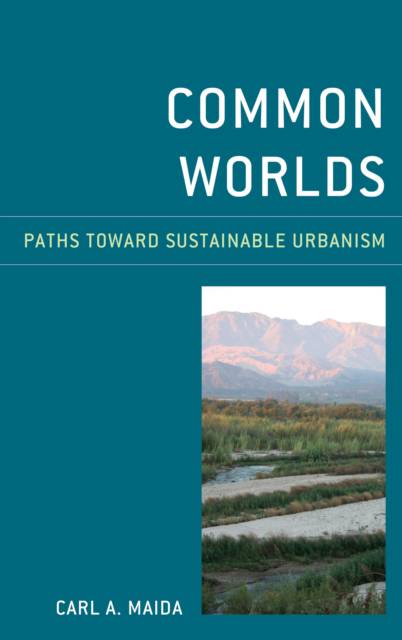
- Afhalen na 1 uur in een winkel met voorraad
- Gratis thuislevering in België vanaf € 30
- Ruim aanbod met 7 miljoen producten
- Afhalen na 1 uur in een winkel met voorraad
- Gratis thuislevering in België vanaf € 30
- Ruim aanbod met 7 miljoen producten
Zoeken
€ 98,45
+ 196 punten
Uitvoering
Omschrijving
Common Worlds: Paths Toward Sustainable Urbanism explores expert and lay approaches to sustainable urbanism, focusing on the politics and civic aesthetics of space and place; project-based learning and it consequences for the life chances of youth; and the prospect of intergenerational civic engagement. Extended case studies of sustainable urbanism describe areas undergoing demographic and socioeconomic change over the two decades since the end of the Cold War. The case studies, based upon participatory action research, are framed through the lens of transformational anthropology, which focuses on the structural factors and power relationships that contribute to social and economic disparities within a population. This approach is based upon principles of personal and group transformation, and it holds researchers responsible for collaborating with communities and groups in co-constructing research, thereby enhancing the constituents' ability to carry out subsequent transformational change studies rooted in and shaped by the local community. Each case also focuses on a movement in support of aesthetic improvement, including preservation, conservation, and restoration efforts on behalf of parkland, open space, agricultural land, and marine wetlands in the face of external threats to their sustainability.
Specificaties
Betrokkenen
- Auteur(s):
- Uitgeverij:
Inhoud
- Aantal bladzijden:
- 280
- Taal:
- Engels
Eigenschappen
- Productcode (EAN):
- 9781442271142
- Verschijningsdatum:
- 23/11/2018
- Uitvoering:
- Paperback
- Formaat:
- Trade paperback (VS)
- Afmetingen:
- 152 mm x 226 mm
- Gewicht:
- 430 g

Alleen bij Standaard Boekhandel
+ 196 punten op je klantenkaart van Standaard Boekhandel
Beoordelingen
We publiceren alleen reviews die voldoen aan de voorwaarden voor reviews. Bekijk onze voorwaarden voor reviews.







